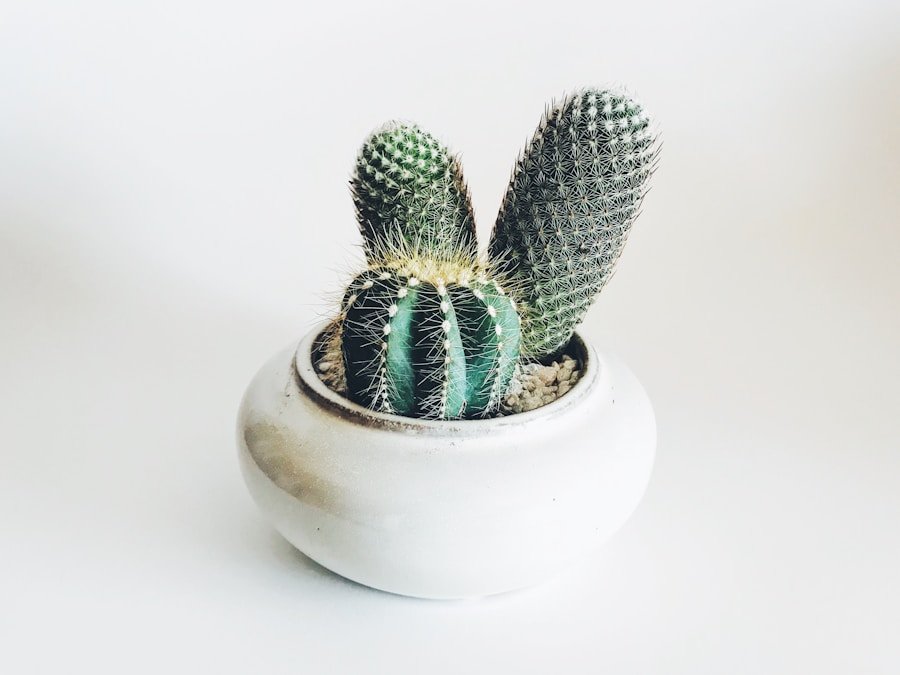Taraxacum, commonly known as dandelions, boast a centuries-old history that spans across the globe. Native to Europe and Asia, these plants have dispersed to inhabit almost every continent. Despite being perceived as a nuisance by many, dandelions have been esteemed for their medicinal and culinary properties for centuries.
The origin of the name “dandelion” lies in the French phrase “dent de lion,” meaning “lion’s tooth,” which refers to the plant’s jagged leaves. In ancient times, various cultures utilized dandelions for their therapeutic properties. The Chinese employed dandelion as a traditional remedy for digestive issues, while Native Americans used it to treat kidney disease and edema.
In medieval Europe, dandelions were regarded as a symbol of healing and were used to treat a range of ailments, including liver problems and skin conditions. Over time, the perception of dandelions has shifted from being viewed as a weed to being recognized as a valuable plant with numerous benefits. Dandelions have also been steeped in folklore and superstition.
In certain cultures, blowing on a dandelion puff and making a wish is believed to bring the wish to fruition. In others, dandelions are seen as harbingers of good luck or used in divination practices. The rich cultural significance and history of dandelions have contributed to their enduring popularity and widespread use.
Key Takeaways
- Dandelions have a rich history and were once considered a weed, but are now recognized for their surprising benefits.
- Dandelions are a nutritional powerhouse, packed with vitamins, minerals, and antioxidants, making them a superfood.
- Dandelions have been used in traditional medicine for centuries, with healing properties for various ailments.
- Dandelions can be used in a variety of culinary dishes, from salads to teas, adding a unique flavor and nutritional boost.
- Dandelions have eco-friendly benefits, such as attracting pollinators and improving soil health, making them a valuable plant for the environment.
Nutritional Benefits of Dandelions: A Surprising Superfood
Nutrient-Rich and Versatile
Dandelions are often underappreciated as a source of nutrition, but they are actually packed with vitamins, minerals, and antioxidants. The entire plant is edible, from the roots to the flowers, making it a versatile and nutritious addition to any diet.
Essential Vitamins and Minerals
Dandelion greens are particularly rich in vitamins A, C, and K, as well as calcium, iron, and potassium. These nutrients are essential for maintaining healthy bones, skin, and immune function.
Antioxidant and Prebiotic Properties
In addition to their nutritional content, dandelions are also a good source of antioxidants, which help protect the body from oxidative stress and inflammation. The antioxidants found in dandelions may also have anti-cancer properties and could help reduce the risk of chronic diseases such as heart disease and diabetes. Dandelion root is also known for its prebiotic properties, which can help support a healthy gut microbiome and improve digestion. The nutritional benefits of dandelions make them a valuable addition to any diet. Whether consumed raw in salads, cooked in soups and stews, or brewed into tea, dandelions offer a wide range of health-promoting nutrients that can support overall well-being.
Dandelions in Traditional Medicine: Healing Properties and Uses
Dandelions have been used in traditional medicine for centuries due to their numerous healing properties. The plant is known for its diuretic and detoxifying effects, making it a popular remedy for kidney and liver health. Dandelion root is often used to support liver function and aid in the elimination of toxins from the body.
The leaves are also used as a natural diuretic to help reduce water retention and bloating. In addition to their detoxifying properties, dandelions have been used to treat digestive issues such as indigestion, constipation, and gas. The plant’s bitter compounds stimulate digestion and promote the production of digestive enzymes, making it an effective remedy for gastrointestinal discomfort.
Dandelion tea is often consumed for its digestive benefits and is believed to help improve appetite and alleviate symptoms of irritable bowel syndrome. Dandelions are also valued for their anti-inflammatory properties, which can help reduce pain and swelling associated with conditions such as arthritis and gout. The plant’s high antioxidant content further contributes to its anti-inflammatory effects, making it a valuable natural remedy for managing chronic pain and inflammation.
Culinary Uses of Dandelions: From Salads to Tea
| Benefit | Details |
|---|---|
| Nutritional Value | High in vitamins A, C, and K, as well as calcium, iron, and potassium |
| Medicinal Uses | Traditionally used to treat digestive issues, skin problems, and inflammation |
| Culinary Uses | Can be used in salads, teas, and even to make dandelion wine |
| Environmental Benefits | Attracts pollinators and can help improve soil health |
Dandelions are not only nutritious but also versatile in the kitchen. The leaves can be eaten raw in salads or cooked as a nutritious green vegetable. Dandelion greens have a slightly bitter flavor that pairs well with citrusy dressings or savory ingredients such as bacon and garlic.
The flowers can be used to make dandelion wine or infused into syrups and jellies for a sweet treat. Dandelion roots can be roasted and ground to make a caffeine-free coffee substitute that has a rich, earthy flavor. Dandelion root tea is also popular for its detoxifying properties and can be enjoyed hot or cold.
The entire plant can be used in culinary creations, from soups and stews to smoothies and baked goods. In addition to their culinary uses, dandelions are also used in herbal medicine to make tinctures, extracts, and supplements. Dandelion supplements are often used to support liver health, aid in digestion, and promote overall well-being.
Dandelions for the Environment: Eco-Friendly Benefits and Uses
Dandelions offer numerous benefits for the environment as well. The plant’s deep taproot helps break up compacted soil and improve drainage, making it an excellent companion plant for other crops. Dandelions also attract pollinators such as bees and butterflies, supporting biodiversity in gardens and natural habitats.
The leaves of dandelions can be used to make natural fertilizers that enrich the soil with essential nutrients. Dandelion compost can also be used to improve soil structure and promote healthy plant growth. Additionally, dandelions are often used in permaculture practices to create sustainable food systems and regenerative landscapes.
Dandelions are also valued for their resilience and ability to thrive in diverse environments. The plant’s adaptability makes it an ideal candidate for rewilding efforts and urban green spaces. By embracing dandelions as a valuable part of the ecosystem, we can promote biodiversity and create more sustainable landscapes.
Dandelions in Beauty and Skincare: Natural Remedies and DIY Recipes
Nourishing Skin with Dandelion Oil
Dandelion oil is a popular ingredient in massage oils and balms, renowned for its anti-inflammatory effects that soothe sore muscles and joints. Additionally, it moisturizes dry skin, promoting a healthy and radiant complexion.
Protecting Skin with Dandelion Extract
Dandelion extract is a common ingredient in skincare products like lotions, creams, and serums, thanks to its high antioxidant content. It shields the skin from environmental damage, reducing the appearance of fine lines and wrinkles while promoting a youthful glow.
Reaping the Benefits of Dandelion Tea
Dandelion tea serves as a natural toner or facial steam, cleansing the skin and minimizing pores. Its anti-inflammatory properties reduce redness and irritation, promoting a clear complexion. Moreover, dandelion tea bags can be used as soothing eye compresses to reduce puffiness and dark circles.
Cultivating Dandelions: Tips for Growing and Harvesting this Versatile Plant
Dandelions are easy to grow and require minimal maintenance, making them an ideal addition to any garden or landscape. The plant thrives in full sun or partial shade and can adapt to various soil types, including poor or compacted soil. Dandelion seeds can be sown directly into the ground in early spring or fall, or transplanted from nursery-grown plants.
To harvest dandelions for culinary or medicinal use, it’s important to select plants that have not been treated with pesticides or herbicides. The leaves are best harvested when young and tender, before the plant flowers. The flowers can be harvested when fully open and can be used fresh or dried for later use.
Dandelion roots are typically harvested in the fall when the plant’s energy is focused on storing nutrients underground. The roots can be dug up, cleaned, dried, and roasted for use in herbal preparations or culinary creations. By cultivating dandelions in your own garden or landscape, you can enjoy the many benefits of this versatile plant while supporting biodiversity and sustainability.
In conclusion, dandelions are much more than just a pesky weed—they are a valuable source of nutrition, medicine, beauty products, and environmental benefits. By embracing dandelions as a wonder plant, we can tap into their numerous uses and promote a more sustainable way of living. Whether enjoyed in salads, brewed into tea, or used in natural skincare products, dandelions offer a wealth of benefits that have been cherished by cultures around the world for centuries.
With their rich history and diverse uses, dandelions truly deserve their place as a versatile wonder of nature.
FAQs
What are the health benefits of dandelions?
Dandelions are rich in vitamins, minerals, and antioxidants. They have been used in traditional medicine to treat various ailments such as digestive issues, inflammation, and high blood pressure. Dandelion greens are also a good source of fiber and can support healthy digestion.
How can dandelions be used in cooking?
Dandelion greens can be used in salads, smoothies, or sautéed as a side dish. The flowers can be used to make dandelion wine or infused into syrups and honey. Dandelion roots can be roasted and ground to make a coffee substitute.
Are dandelions safe to eat?
Yes, dandelions are safe to eat as long as they have not been treated with pesticides or other chemicals. It is important to harvest dandelions from areas that are free from pollution and contamination.
Can dandelions be used for skincare?
Dandelion extract is known for its anti-inflammatory and antioxidant properties, making it a popular ingredient in skincare products. It can help soothe irritated skin, reduce the appearance of fine lines, and protect against environmental damage.
Are there any environmental benefits to dandelions?
Dandelions are beneficial to the environment as they provide an early source of nectar for bees and other pollinators. Their deep taproots can also help break up compacted soil and improve its fertility.






